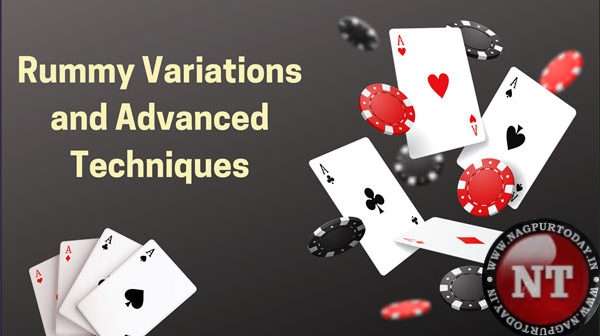
The popular card game of Rummy is a blend of skill and strategy. To be good at it, you need to understand its scoring systems, all the different variants of the game, and advanced techniques that are focused on staying ahead of opponents. The guide below will help you understand how to play Rummy like an experienced player.
Scoring Systems in Rummy
The aim of rummy is to form sets and sequences ahead of your rivals. Scoring is different for each of the rummy variants:
Basic Rummy: Points are accumulated based on the remaining cards left in a player’s hand. Face cards (King, Queen, Jack) count 10 points apiece while numerical cards each retain their own number value. The value of Ace can be 1 or 11 points depending on game rules.
Gin Rummy: In this classic variant, players aim to knock (end the game) with fewer deadwood (unmatched cards) than their opponent. Points are determined by the difference in deadwood points. Undercutting, which means having fewer points than an opponent when they knock, and going Gin (having no deadwood) are given as bonuses.
Indian Rummy: In each round of Indian Rummy, it is necessary for players to form at least two sequences, one of which must be pure (no jokers). Points are based on unplaced cards and face cards count 10 points each. That results in a maximum penalty of 80 points per round.
Popular Rummy Variations
While the key elements of Rummy do not change, plenty of variants await you:
- Indian Rummy: Popular in South Asia, players try to form valid groupings of cards. Played by two to six players, scores accumulate across round after round.
- Gin Rummy: A two-player game in which minimising deadwood is a top priority. Players try to knock or go Gin, by first melds (sets or sequences).
- Oklahoma Rummy: Same as Gin Rummy, except that the number of points required to knock is chosen randomly adding another uncertain element factor to this game in otherwise rather predictable conditions.
Advanced Techniques of Rummy Play
If you are wondering how to play Rummy games with high winning chances the answer lies in advanced rummy techniques such as the following.
- Card Tracking: Observe the cards your opponents take and discard. It may help you in predicting sets and sequences they are attempting to form, and prevent them from being able to complete them.
- Joker Management: Jokers are crucial to completing impure sequences. Use them carefully, and don’t spend them in a pure sequence.
- Bluff: Discard cards that your rivals might think are beneficial, though they are not to you. In doing so, you may throw them off balance and disrupt their tactics.
- Balance Offense and Defense: Not only should you concentrate on building your own hand, but also try to throw your opponents off if you can by not discarding cards that they could find useful.
Conclusion
By mastering the scoring systems, familiarising yourself with various Rummy games, and using advanced techniques like those found in A23 to improve your skill set, you will drastically improve your level of play in Rummy. Learn how to play rummy and enjoy the game anywhere and anytime.



























